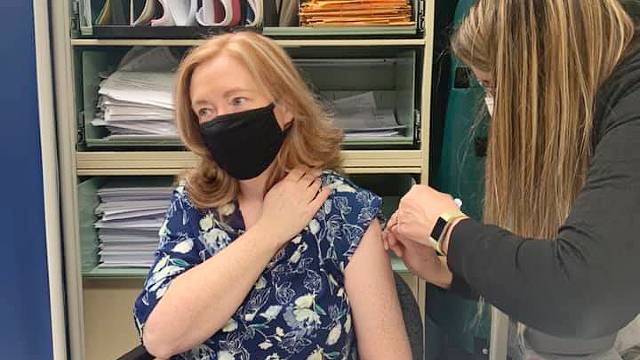By Carol Stiffler
Many members of the staff at Helen Newberry Joy Hospital and the William Gibson Family Health Clinic received the first dose of the Pfizer vaccine to fight COVID-19. The vaccine is optional at this point, said Dr. Patricia Gill, and about 100 employees opted to receive it.
Gill and her husband, Dr. Raghu Rao, received the vaccine on December 21. They felt typical symptoms after – fatigue, and a sore arm, but have no regrets.
“[We were] very glad we could get it so soon,” Gill said. She and Rao felt safe taking it, she said, and posted photos of the vaccination on social media to encourage others to receive the vaccine when it’s their turn.
Staff will need a second dose of the vaccine approximately three weeks after receiving the first.
Doses of the Moderna vaccine, which received FDA approval shortly after the Pfizer vaccine, are being distributed in other parts of the state.
Both the Pfizer and Moderna vaccines are mRNA vaccines, which is different from some vaccines of the past. Common vaccines use weak or dead virus cells to train the body’s immune system. The COVID vaccines take a different approach. According to the CDC, the Pfizer and Moderna vaccines teach our cells how to make a spike protein – like those found on the outside of the COVID virus – by sending a messenger RNA to the cells. The cells learn to make the protein, identify it as an unwanted invader, and are then ready to fight the spiky COVID-19 virus, should it arrive.
Though the vaccines are widely labeled “safe and effective”, the CDC recommends that anyone who has ever had a severe reaction to any ingredient in the vaccine should not receive that vaccine.
“If you have had a severe allergic reaction to other vaccines or injectable therapies, you should ask your doctor if you should get a COVID-19 vaccine,” the CDC advises. “Your doctor will help you decide if it is safe for you to get vaccinated.”












